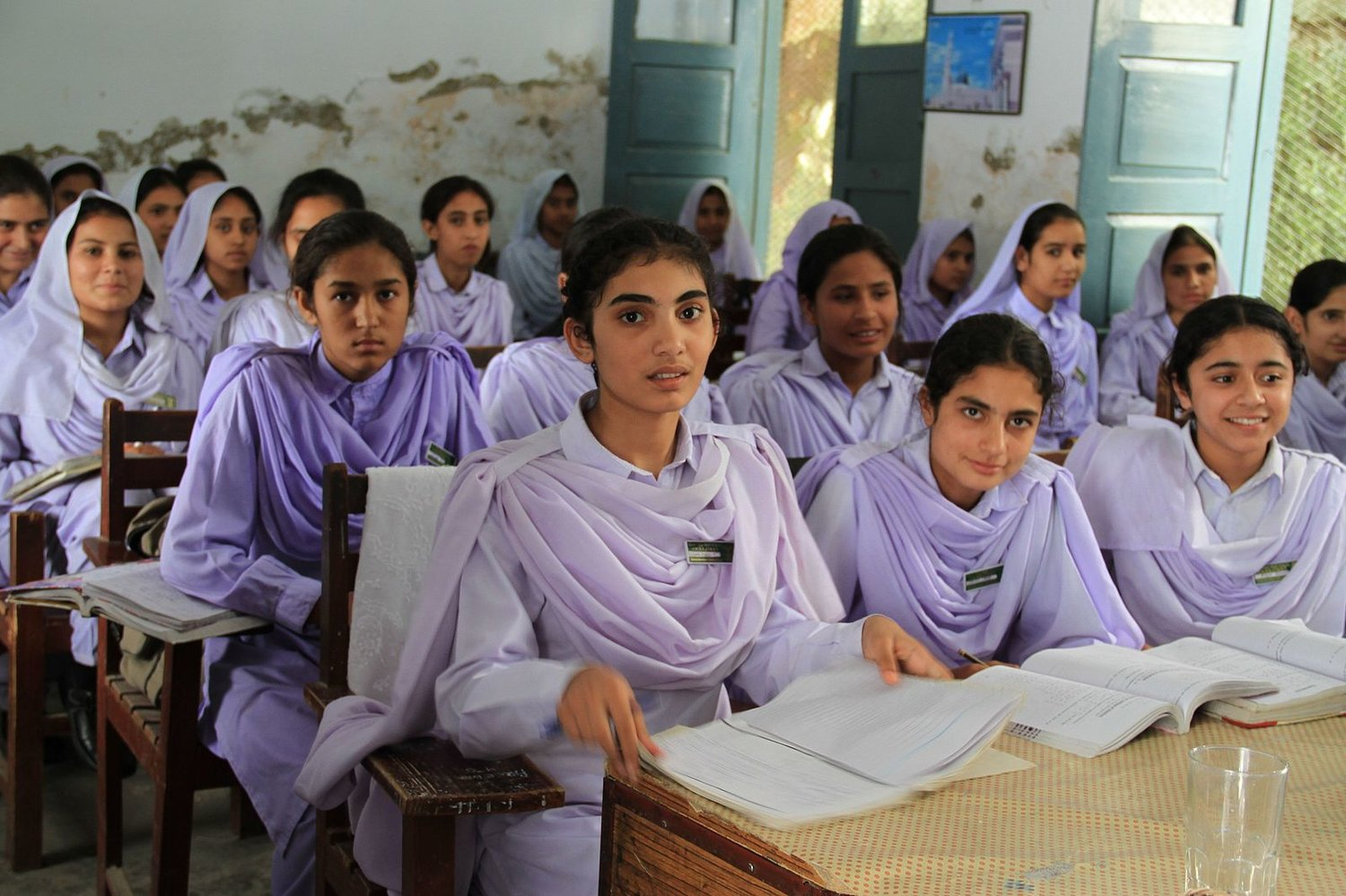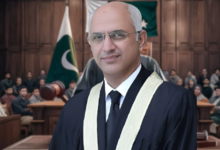Unfamiliar with Arabic Language: Non-Muslim students struggle with studying Islamiyat

ISLAMABAD: Majority of students belonging to religious minorities in Pakistan are struggling to study Islamiyat as they are unfamiliar with Arabic reading and writing. Furthermore lack of alternatives and unavailability of qualified teachers to teach ethics to non-Muslim added into their troubles, the Reporters has learnt.
Students of minority communities complained that they are struggling with studying Islamiyat, as they are unfamiliar with reading and writing Arabic language.
They said that due to unavailability of alternatives and required facilities in educational institutions, they do not have a choice and ultimately prefer to study Islamiyat.
However, officials claimed that the curriculum included alternative subjects for minority students and they can choose the subject of their own choice.
Although, the education department has included ‘Ethics’ as an alternative subject for the non-Muslim students to its curriculum; however, it failed to appoint teachers for the said subject in the schools.
Gorpal Singh, leader of the Sikh community in Peshawar, told this scribe that around 95 percent of Sikh students study ‘Islamiyat’ instead of ‘Ethics’.
“Majority of Sikh students prefer Islamiyat instead of ‘Ethics’ as their elective subject because they have been studying Islamiyat since their school level.
However, our students face difficulties as they are unfamiliar with reading and writing Arabic,” he added.
The Sikh community leader opined that Sikh students study Islamiyat because they want to learn about Islam and Muslims.
Singh suggested that alternative subjects should also be offered for minority students so they can study a subject of their choice other than Islamiyat.
He further deliberated that if the educational institutions were equipped with facilities to offer alternative subjects to minorities they would definitely study ‘Ethics’ and other subjects being included in their curriculum.
Giving reference to article 22 of the constitution of Pakistan, Gorpal maintained that the Constitution clearly states that no one should be forced to study religion other than his own.
Special Assistant to Prime Minister on Interfaith Harmony and Middle East Tahir Mehmood Ashrafi has said the rights given to the minorities by the Constitution and Islamic laws cannot be disputed and there is no content in the curriculum against the minorities.
The rights given to the minorities by the Constitution and Islamic laws cannot be disputed and there is no content in the curriculum against the minorities. Special Assistant to Prime Minister on Interfaith Harmony Tahir Ashrafi
He said non-Muslim students have a choice in curriculum with regard to reading Islamic history and teachings, adding that there is no content in the curriculum against the minorities and their respective sanctities.
Tahir Ashrafi has said no one would be allowed to usurp the rights of the minorities in the country.
It is the responsibility of religious scholars to educate people about right and wrong ideologies, he stressed.
Tahir Ashrafi further said that all minorities living in Pakistan are enjoying complete religious freedom as all their rights are protected as per the Constitution.
Uniform Curriculum
Earlier in April this year, the Shoaib Suddle Minority Commission report had suggested a uniform curriculum across the country and, for the purpose, omitting write-ups on Islamic teachings and Islamic history from textbooks except in Islamiyat.
Referring to the suggestions of the one-member Minority Commission, Council of Islamic Ideology (CII) Chairman Dr Qibla Ayaz said that the CII did not agree with the report of the Minority Commission.
He termed the Commission’s report as unconstitutional.
Dr Qibla Ayaz said the content of the one-man commission report was unconstitutional and CII would prepare its recommendations after thorough perusal and deliberations.
The content of the one-man commission report was unconstitutional and CII would prepare its recommendations after thorough perusal and deliberations. CII Chairman Dr Qibla Ayaz said
Earlier, Tahir Ashrafi, who is also chairman of the Muttahida Ulema Board, had rejected the Commission’s recommendations.
He had said neither content of the curriculum poses any threat to minorities nor is there anything that desecrates religious beliefs of minorities. In fact, minority students are not bound to study Islamic teachings, he added.
It is to mention here that former chief justice Mian Saqib Nisar had created a one-man commission in January 2019 to push the federal and provincial ministries and departments to implement the Supreme Court’s 2014 landmark judgment on religious minorities.
The commission was created to “take all measures to implement” the judgment passed by the former chief justice Tassaduq Hussain Jillani on June 19, 2014.
The Commission was tasked to “develop appropriate curricula for primary, secondary and tertiary levels of education that promote religious harmony and tolerance”.
“We believe in interfaith, non-Muslim students should also acquire knowledge about every religion but as Muslims are studying Islamiyat, non-Muslims should have also the right to study their own religion related syllabus,” Sahib Singh, a civil society activist, said.
Every religion has its own teachings and there must be a separate subject for every religion that exists in Pakistan; however the student must be free to choose the subject, he stressed.
Sahib Singh said that the specification of Ethics is that it is only for non-Muslims students is injustice, while studying of Islamiyat is not bad because other religious minorities are living in Pakistan, where they must know about the majority’s religion.
Gulshan Kumar, a Hindu student at Quaid-e-Azam University, Islamabad, maintained that the existence of ‘Ethics’ as a subject for minorities is an illusion. He said that the Ethics subject only exists on paper in the curriculum.
Educational institutions are neither equipped with books on Ethics nor with adequate teachers for that subject. Therefore, schools just end up enrolling non-Muslim students into Islamic Studies, anyways in complete violation of the Constitution. QAU student Gulshan Kumar
Kumar said that here schools are not equipped with books on Ethics nor with adequate teachers for that subject. Therefore, schools just end up enrolling non-Muslim students into Islamic Studies, anyways in complete violation of the Constitution.
He stated that the minority students mostly prefer to study Islamiyat as an elective subject due to lack of resources and unavailability of teachers. While recounting the reasons behind non-Muslims studying Islamiyat, Kumar maintained that minority students are in less number in a class; therefore, it is impossible to arrange a separate teacher for one or two students.
If the number of minority students is more than four or five then we prefer to study Ethics. Secondly, he opined that they prefer to study Islamiyat instead of Ethics because the Ethics subject is comprised of lessons about different religions; therefore, they prefer to study Islamic Studies because they had to live together with Muslims and need to learn about Islam and Muslims rather than other religions.
“Studying Islamiyat is comparatively difficult for us to study because we are not familiar with writing and reading Arabic,” Kumar noted.
Narwan, a minority student at University of Swabi, said that they have studied Islamiyat from the beginning at government schools; therefore, they prefer to study Islamiyat as it is easy for them to study as compared to other subjects.
Narwan said that the students from minority communities had their choice to study either Ethics or Islamiyat, adding that there are also some students from minority communities who study the alternative subjects.
Mukhtiar Burdi, Maryum Urooj Khan and Muhammad Moiz Khan of University of Karachi in their research study found that in educational institutions, not enough education is provided about minority religions.




